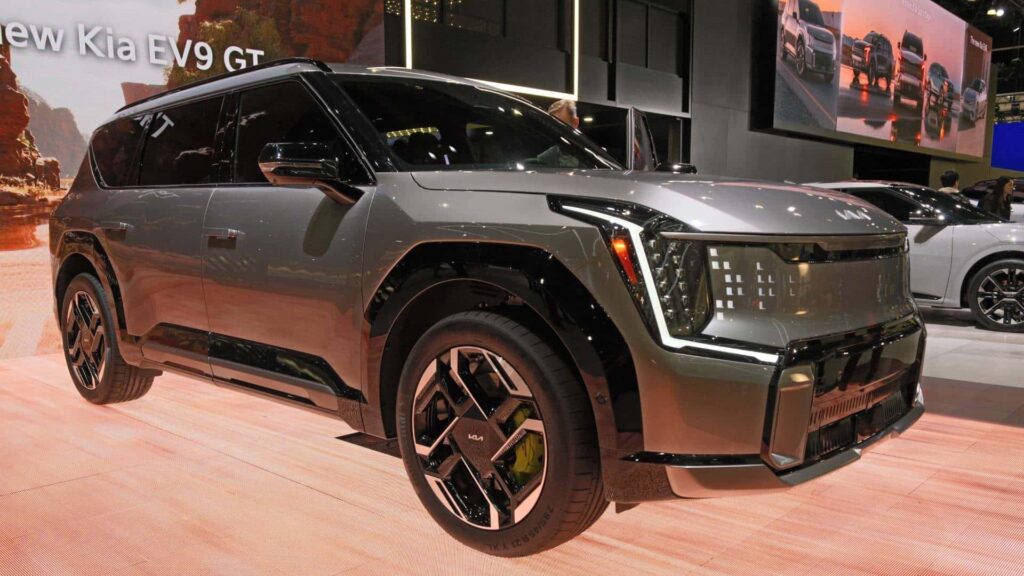The potential elimination of the electric vehicle tax credit has sparked concerns within the auto industry, with Kia America’s COO expressing strong sentiments against such a move. In a recent statement, Kia’s COO highlighted the negative impact that removing the tax credit would have on the industry, calling it “messed up” and “dumb.”
Kia, along with other carmakers, has made significant investments to comply with the rules of the tax credit. These investments include bringing manufacturing of electric vehicles to the United States and adjusting supply chains to meet the requirements for qualifying vehicles. The South Korean automaker has been gearing up to launch its EV6 and EV9 models in the US, with plans to introduce more electric vehicles in the coming years.
The potential loss of the tax credit poses a threat to the entire American car business, as it could disrupt jobs and the trajectory of the industry. The COO emphasized the importance of allowing the industry to recoup its investments before making any changes to the tax credit. He also noted that while the change would “hurt,” it would not completely crush EV sales.
The Inflation Reduction Act, which included the latest revision to the EV tax credits, has been credited with creating jobs and supporting the environment. The COO stressed the importance of stable policies to support the growth of the electric vehicle market and ensure a sustainable future for the industry.
As the auto industry braces for potential changes to the tax credit, Kia and other carmakers are hoping that policymakers will consider the long-term implications of such a decision. The industry has made significant strides in electrification, and any disruptions to the tax credit could have far-reaching consequences. The COO’s comments serve as a reminder of the challenges and uncertainties that lie ahead for the electric vehicle market. The recent news that the Trump transition team is considering eliminating the electric vehicle tax credit has sent shockwaves through the EV industry. The provision, which aims to boost demand for battery-powered cars and reduce the U.S. auto industry’s reliance on Chinese battery supply chains, has been a key driver of EV adoption in recent years.
If the credit were to be eliminated as part of broader tax reform, it could have significant implications for the EV market. The Zero Emission Transportation Association, a trade group representing EV and battery companies, has defended the policy, arguing that it is essential for supporting American job growth and competitiveness against China.
The Alliance for Automotive Innovation, the auto industry’s largest lobbying group, has also urged Congress to maintain the EV tax credit to ensure that its members can remain competitive in the global market. However, the fate of the credit ultimately lies in the hands of Congress, which currently has a Republican majority.
While the elimination of the EV tax credit could deal a blow to EV sales, it may not be a doomsday scenario. According to experts, the impact may be mitigated by the fact that the credit has income requirements that limit its accessibility to higher-income households.
The potential loss of the tax credit comes at a time when automakers like Kia are ramping up their EV offerings. While Kia currently does not have any vehicles that qualify for the buying credit, it does offer a $7,500 leasing incentive that is more widely accessible to customers.
Overall, the debate over the future of the EV tax credit highlights the challenges and opportunities facing the EV industry as it seeks to transition to a cleaner, more sustainable future. While the elimination of the credit could pose challenges, it may also spur innovation and investment in the sector as companies look for new ways to incentivize EV adoption. Charging infrastructure remains a significant hurdle to widespread electric vehicle adoption, according to industry experts. This issue was highlighted by a recent statement from a prominent figure in the field, who emphasized the importance of expanding charging networks to support the growing number of electric vehicles on the road.
The individual suggested that even if government incentives, such as tax credits for electric vehicle purchases, were to be phased out, it should be done gradually to minimize disruption to the market. The abrupt removal of such incentives could potentially hamper the progress made in promoting electric vehicle adoption and transitioning to a more sustainable transportation system.
In light of these challenges, it is crucial for policymakers and industry stakeholders to work together to address the infrastructure gaps and ensure that electric vehicle owners have convenient access to charging stations. This includes expanding the network of fast chargers along highways and in urban areas, as well as incentivizing the installation of charging stations in workplaces, apartment complexes, and other public spaces.
By investing in charging infrastructure and promoting the adoption of electric vehicles, we can pave the way for a cleaner and more sustainable future. It is essential to support the transition to electric mobility by making charging convenient, accessible, and reliable for all drivers. Only through collaborative efforts and strategic planning can we overcome the barriers to electric vehicle adoption and realize the full potential of this transformative technology.

